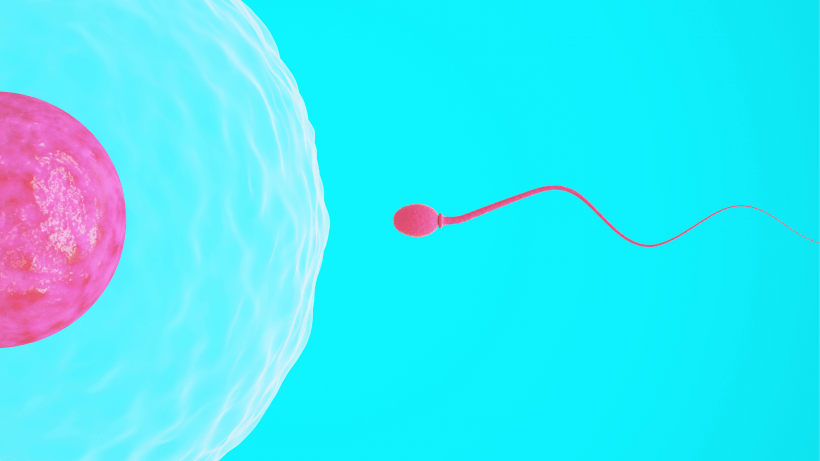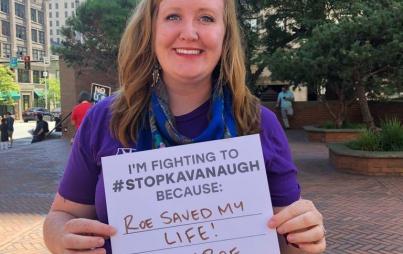
As new anti-choice laws are passing across the country severely restricting abortion access, I am repeatedly struck with the not-so-useful impulse to argue with folks on the internet because so, so many people seem to have a really shaky understanding of female reproductive everything. Primarily men, and more specifically, the men who are making decisions about reproductive healthcare. But to them reasonable arguments don’t matter when it comes to “the unborn,” because they feel like pregnancy, wanted or not, should be the consequence for sex.
But of course, the consequence is lopsided, because it is only the pregnant party who will have to risk their physical and mental health, bear the burden of giving birth, and be saddled with most if not all the responsibility when the baby is born. Then of course when that baby is born, there will be no help from those same lawmakers who are making it their mission to stop abortion because they love the idea of “life” a lot more than actual, living children.
So let’s talk about that idea. Anti-choice folks love to say that these laws aren’t about controlling and punishing a large portion of the population, they are about the sanctity of life. And life, according to those who are anti-choice, begins when sperm meets egg. This is so highly specific and seemingly arbitrary that I can’t help but ask where, exactly, this idea of “where life begins” materialized from?
It’s certainly not in the Bible. Don’t give me that “I knit you together in your mother’s womb” verse, because me casting a single stitch is not the same as a half-finished blanket. There is no verse that says life begins at the moment of conception, but as the argument goes if we don’t start right at that glimmer of potential life then we risk the “slippery slope” of trying to determine, one day to the next, when life should be protected. Which is why anti-choice advocates are so hesitant to give even the slightest leeway to science when it comes to discussing the viability of life.
Because what we’re talking about isn’t viable life, it’s potential life.
It’s the idea of life. The idea of “the unborn” rather than the reality of a clump of cells whose vibrations mimic a “heartbeat” despite the absence of an actual heart, because again, this is an embryo we’re talking about and there are no organs. So if we’re talking ideas driven by emotion and we can’t move the line further down the road, can we talk about moving it back? Can we talk about how sperm are truly the yarn with which God knits those babies in the womb, and therefore every sperm is sacred? And if we can’t talk about sperm in the same reverent tones we talk about fertilized eggs, why not?
Scientific advancement has moved the line on where anti-choice advocates believe life begins with no particular rhyme or reason -- certainly none which pertain to scripture, which is vague at best in this particular regard. Despite the fact that 50 percent of all fertilized eggs pass through the body just as they would during normal menstruation, that's where the anti-choice camp has decided life begins -- because that fertilized egg has the potential to implant and eventually become a human fetus if God so wills it. So why is it such a stretch to say the same of sperm? Honestly, sperm are so much more life-like than eggs. They swim with their flagellum. They are the source of all human potential. Because that's what we're talking about, right? The potential of pre-fetal organisms to be touched by God's divine hand? The potential for a life that cannot survive without its host?
Who are we to say that life doesn't begin with that single unique sperm?
Eggs are naturally passed through the system each month with or without fertilization (as God hath ordained). But sperm need not suffer the same fate. If we truly cared about the potential for life, we would insist that sperm should only leave one's system in hopes of creating new life. We would mandate vasectomies to save all that precious sperm until they are ready to become the babies God intended them to be. In fact, it's the only truly "pro-life" way to legislate reproductive health, because it would save the lives of the unborn and pregnant people alike.
You Might Also Like: 10 Reasons We Should Defund Planned Parenthood IMMEDIATELY
Because if we’re going to legislate with emotion over reason, if we’re going to blatantly disregard separation of church and state, we might as well do so in a way that protects the greatest number of people. We know from history that banning abortion does not stop abortion, it simply prohibits safe, accessible abortion and ends up killing those faced with unwanted pregnancies who are forced to seek out alternatives. Even if we don’t want to move the line on where life begins, why don’t we legislate male bodies to prevent unwanted pregnancies in the first place.
Save the greatest number of lives. Why not?
Maybe because this isn’t about life or even the idea of life in the first place. It’s not about preventing abortions, because we could reasonably end all unwanted pregnancies by addressing the source of the problem: irresponsible ejaculation, as Gabrielle Blair suggests in her viral article “Men Cause 100% of Unwanted Pregnancies.” We could hold men responsible for their actions. We could legislate male bodies in a way that is far less invasive and harmful than the way we legislate female bodies. But we won’t, because cis male privilege and cis male autonomy is far more important than the lives of anyone else, even the innocent unborn they wax poetic about.
The line where life begins could reasonably be moved, but it won’t be.
We can’t bear to have it move down the “slippery slope” past conception nor can we allow it to move up to the safest high ground where the potential for life (and therefore legislation) lies in male bodies. Because the line we draw is not one concerned with life, but one concerned with the continued comfort of cis men with total disregard for the lives of anyone else.
Because “life” was never the issue, and never will be until we’re willing to let cis men be punished with the same impunity we reserve for those forced to carry unwanted pregnancies — until we’re willing to traumatize and jeopardize cis men at the same level, until we’re willing to hold them responsible regardless of how they will suffer. Or maybe it won’t be about life until we’re willing to let the living have bodily autonomy and safety— until we start valuing existing life over the potential for life that does not yet exist. Maybe, just maybe, we should stop writing laws on an arbitrary line altogether.








